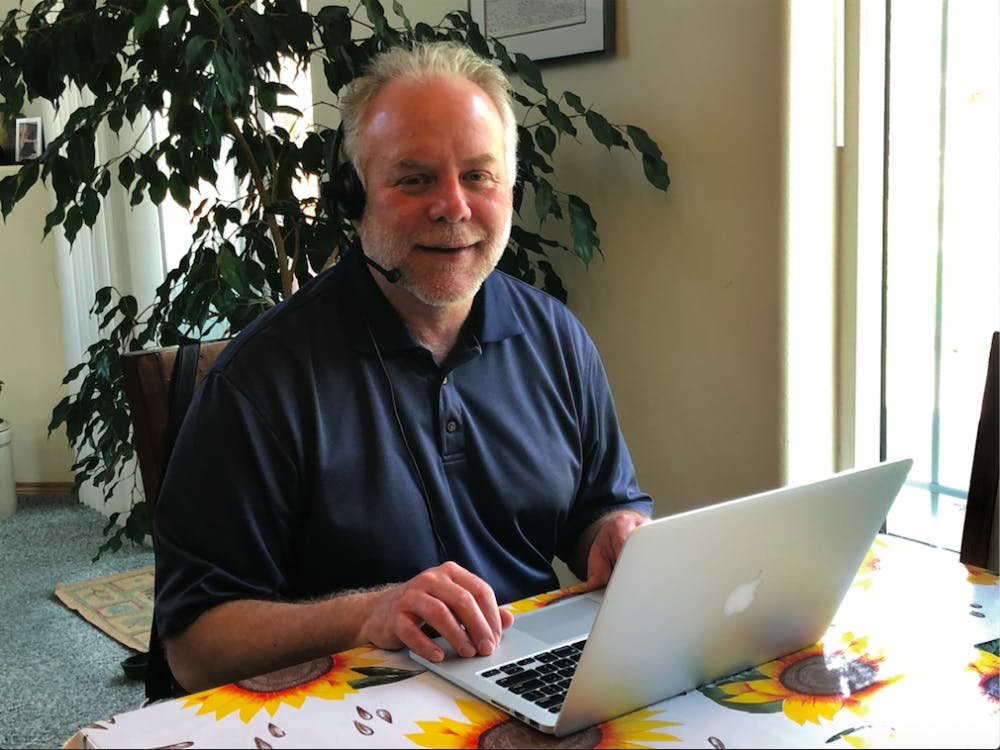
Due to COVID-19, international students holding F-1 visas are able to get a scanned signature without meeting face to face with their international advisor.
The updated immigration status from the U.S. Immigration and Customs Enforcement’s Student and Exchange Visitor Program, temporarily allows international students with F-1 visa status to get a scanned signature on their I-20 document without meeting face to face with the international student advisor.
An I-20 is a Certificate of Eligibility for Nonimmigrant Student Status associated with an F-1 visa, a type of visa that allows international students who wish to study in the United States as full-time students at an accredited college, university, academic high school, elementary school or in a language training program. It requires a travel signature on an I-20 that is issued by an International Student Advisor, which acknowledges that international students are a full-time student in F-1 status. The signature is good for one year.
Western’s international student advisor, Valerie Kimble, said before the COVID-19 pandemic occurred, international students had to get a travel signature from their advisor in person with a physical I-20.
“In the past, we were not authorized to scan I-20s. We had to sign on the paper document,” Kimble said. “Because of the COVID-19 pandemic, SEVP has authorized us on March 26 to temporarily sign and email scanned I-20 to students.”
The closure of Western’s campus since March 18 and social distancing have made it difficult for students to meet with their academic and international advisors.
The SEVP has allowed International Student Advisors to email a scanned version of the physically signed Form I-20, email a digitally signed Form I-20 using electronic signature software or email a digitally signed Form I-20 that contains a digitally reproduced copy of a physical signature.
International Student and Scholar Services Director Richard Bruce, said at Western there are 31 international students who returned to their home country and are taking online courses, 17 who are returning home after graduating or completing their exchange program and 110 students who remain in the U.S.
The exchange students who are holding J-1 visas require only one signature on their arrival throughout their program, Kimble said.
The J-1 visa is a type of visa that is used for students in specific educational exchange programs. This type of visa is intended for students all over the world to gain skills in the U.S. to take back to their home country after the end of the program. This is different from the F-1 visa, which allows students to finish the program in the university within five years in the U.S. The F-1 visa is not used for a specific educational program like the J-1 visa.
Bruce said when the situation returns to normal the immigration rules will return to their previous requirements. The new set of international students who are going to study at Western have to come to the U.S. within 30 days before the next session starts. “The current students with the current I-20, they can come back anytime,” Bruce said.
“For transfer students, since they are here right now in the U.S. and planning to stay here during summer, I don’t see any issue here when they transfer during fall quarter,” Bruce said.
In order to maintain an F-1 visa, students in the U.S. are encouraged to take 12 credits minimum. If students want to study less than 12 credits, they have to contact International Student and Scholar Services to request a “Reduced Course Load” for spring quarter.
International students who are out of the U.S. can take less than 12 credits.
“We advise students to not drop below six credits because they will not have access to the Student Health Center and other campus services,” Kimble said. “Students need at least eight credits to live in on-campus housing.”
One of the international students who went back to his home country, Igor Ribeiro Dias, said he is taking four classes, which is 17 credits in total, during spring quarter. It is his first time taking online courses at Western.
This temporary provision is only effective during COVID-19. SEVP is allowing students with F visa status to take a full course load of online classes instead of the usual one-class limitation for the online classes.
Dias said it is good that the U.S. government allowed international students to go back to their home country during spring quarter and return to the U.S. when the situation gets better.
“Many friends of mine have come back to their home country because the situation in the U.S. is really rough,” Dias said.
International Student Services is available remotely for students, who have questions or concerns about academic life, health and immigration documents. Students can contact International Student Advisors during normal business hours via email, phone and Zoom appointments.





